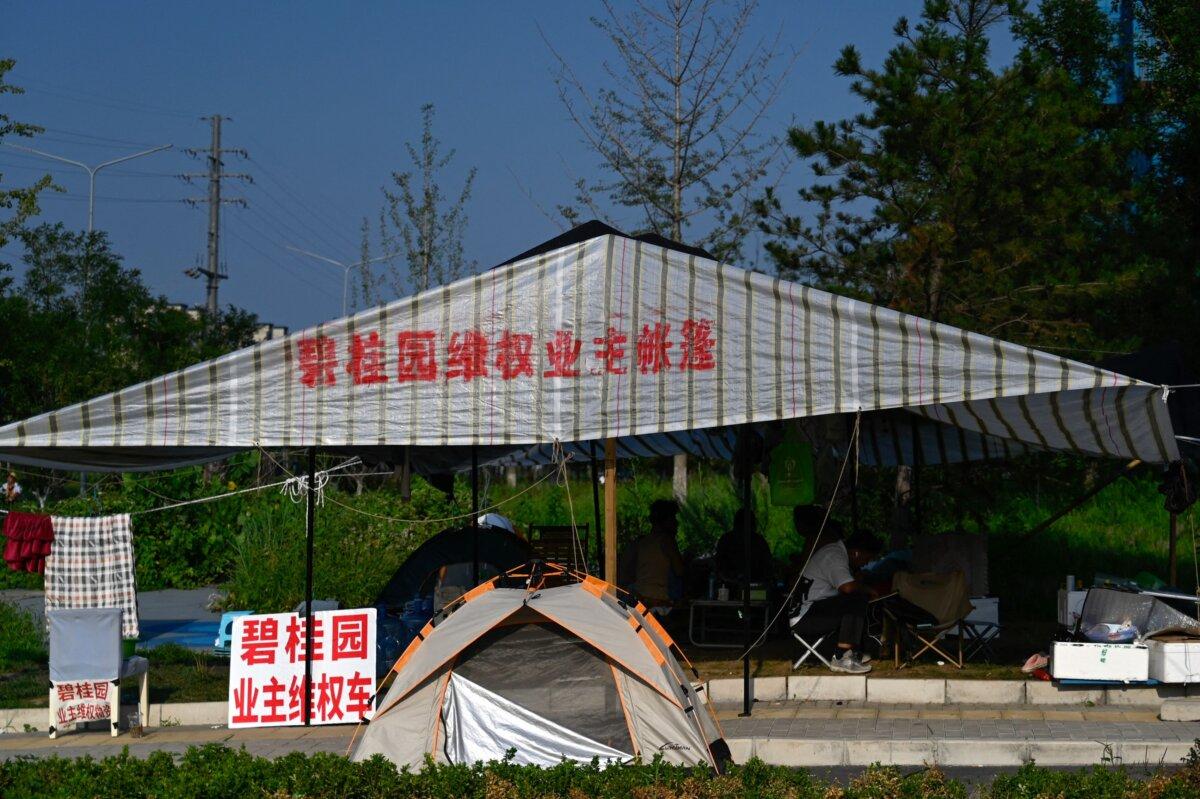The extra tariffs are set to collide with China’s exports, a key pillar of the CCP’s disease economy.
“While there is a possibility that (Beijing) will be involved in (with Washington) privately, the Communist Party has made an absolute statement, leaving very limited room for maneuvering,” Chong told the Epoch Times.
Chung said the CCP is currently facing a “big challenge” due to Washington’s move.
In response, China’s Commerce Department said the administration would not accept Trump’s demands and vow to “fight to the end,” the ministry said in a statement issued on April 8.
Trump later told social media that China “want to do business badly, but don’t know how to start it.”
“We’re waiting for their phone call. It’s going to happen!”
Lee Yeau-Tarn, a professor at Taiwan’s National Chengchi University, noted that China’s response to the latest US tariff hikes is in sharp contrast to other Asian countries.
In contrast, CCP responded quickly and added a TIT-FOR-TAT tariff. China’s Ministry of Commerce has also expanded its “unreliable entity list” to include 11 companies and controls imposed on several rare earth minerals essential to the global market.
Additionally, Chinese state media released a series of commentary on April 5 and 6, denounced Trump’s tariff strategy, sought to downplay its imminent impact on the economy.
But what Beijing didn’t mention is that it has harnessed globalization to its advantage over the years, said the Taiwanese professor.
“They will subsidize their businesses and encourage their economy by engaging in intellectual property theft from developed countries, particularly the US,” Lee told the Epoch Times. In this way, “they lowered the price of their products and monopolized various industries. When there is excess capacity, they dump the products into the global market, creating trade imbalances,” Lee said.
The container-equipped cargo ship was anchored on January 13, 2025 at Qingdao Port in Shandong Province, eastern China. STR/AFP via Getty Images
According to Lee, Beijing’s response reflects the need for customs duties.
“In the end, the only country in the world facing the US will be Communist China,” Lee said. “The tariff war is therefore also a necessary measure to prevent the CCP’s totalitarian dictatorship from winning the free and democratic world.”
It collides with the Chinese economy
While announcing the 34% mutual tariffs in China on April 2, Trump said the CCP has “a huge advantage” for the United States over the years.
The president also signed an executive order on April 2nd that would impose tariffs on low-value packages from China, effectively closing a loophole that allowed Chinese e-commerce companies to export goods under $800 without tariffs to the United States.

On August 15th, 2023, people protest next to the development of the real estate developer Country Garden in Beijing, China. Pedro Paldo/AFP via Getty Images
Wong is expected to hit China’s small and medium-sized hard manufacturers particularly hard, as many people rely heavily on the US market.
“The impact is not catastrophic, but tariffs further narrow down the already thin profit margins and encourage businesses to accelerate their supply chain relocation from China,” Wong told the Epoch Times.
A staff member of the trading company at Shenzhen, a high-tech hub adjacent to Hong Kong, has expressed concern that the fees will affect his company’s exports to the US market as prices need to increase prices.
“In the past… we could lower prices if we still had space,” he told the Epoch Times, demanding that they not be identified to avoid any influence from the administration.
Nowadays, increasing prices seems to be the only real option. Because “our factories need to make profits to keep running,” he said.
“The worst case scenario is that there is less business in the US market,” he added.
Li Yuanhua, a former associate professor of history at the Chinese capital, Normal University, told the Epoch Times that as an authoritarian and totalitarian regime, he does whatever Beijing wants.
But he said, “If the standard of living for today’s Chinese people falls sharply over decades, can they deal with it? With the growing rage of the people, can the CCP really maintain a grip on power?
“There are not many cards left in CCP to play.”
Luo Ya and Jiang Zuoyi contributed to this report.













